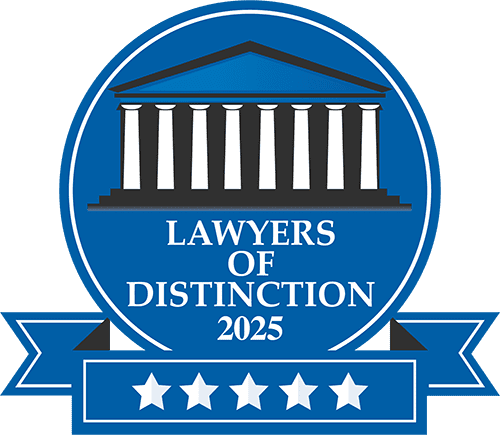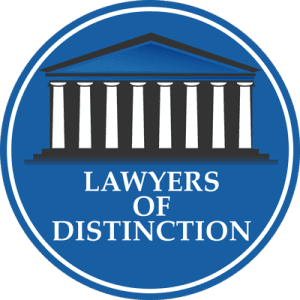Effective client communication is a cornerstone of successful legal practice. For many clients, the legal process can be complex and overwhelming, making clear, timely, and transparent communication essential. Without it, misunderstandings can arise, leading to dissatisfaction and a breakdown in the lawyer and client communication relationship. In a profession where trust is paramount, mastering the art of effective communication can set you apart and lead to long-lasting client relationships. The key to building trust and ensuring client satisfaction lies in how well you communicate.
At Lawyers of Distinction (LOD), we understand that lawyer client communication is not just about exchanging information; it’s about listening, understanding, and responding to client needs in a way they respect and that reassures and empowers them. LOD is dedicated to helping our members distinguish themselves in all aspects of legal practice, including lawyer client communication. By following best practices, lawyers can improve their communication strategies and client communications, ensuring that clients feel supported, informed, and valued throughout the legal process.
Prioritize Clarity And Simplicity
One of the most critical aspects of lawyer and client communication is clarity. Legal jargon, while second nature to lawyers, can be confusing and intimidating for clients. It’s essential to translate complex legal terms and processes into language that clients can easily understand. Clear communication helps to eliminate misunderstandings and ensures that clients are fully aware of their legal situation and the steps involved in their case. This level of understanding builds confidence and trust in the lawyer’s abilities.
In addition to clarity, simplicity in communication is equally important. Lawyers should aim to provide straightforward explanations without oversimplifying the facts. This balance between clarity and simplicity enables clients to grasp the implications of their legal matters without feeling overwhelmed. Additionally, summarizing detailed notes at the end of discussions can help reinforce understanding and confirm that both parties are on the same page.
The format of communication also plays a role in clarity. Whether it’s through emails, phone calls, or in-person meetings, the structure of the message should be logical and organized. Starting with the most important information and then moving on to details ensures that clients get the crucial points first, without sifting through less relevant information. This approach respects the client’s time and fosters a more productive dialogue, which is essential in the legal profession.
Timeliness And Responsiveness Are Key
Clients expect their lawyers to be available and responsive, especially during critical moments in their cases. Timeliness in communication is crucial for maintaining trust and confidence. Clients who feel neglected or ignored are likely to become dissatisfied, regardless of the quality of legal service they receive. To avoid this, lawyers should establish clear expectations about response times and make an effort to respond to client inquiries as quickly as possible.
Being proactive in communication is another way to enhance client satisfaction. Instead of waiting for clients to ask questions, lawyers should anticipate concerns and provide regular updates. This approach not only reassures clients that their case is being handled with attention and care but also prevents any potential issues from escalating due to a lack of communication. Regular updates, even if there is no significant progress, can go a long way in keeping clients at ease.
Moreover, accessibility is a key component of timeliness and responsiveness. Clients should know the best ways to reach their lawyer and feel confident that their messages will be addressed promptly. Offering multiple channels of communication, such as email, phone, and even secure messaging platforms, can help ensure that clients can easily get in touch with their lawyer when needed. This accessibility demonstrates a commitment to the client’s needs and fosters a stronger attorney-client relationship.
Empathy And Active Listening Enhance Relationships
Beyond the technical aspects of communication, the emotional component is equally important. Lawyers must remember that clients often seek legal help during stressful and uncertain times. Showing empathy and understanding can make a significant difference in how clients perceive their lawyer and the overall legal experience. Empathy involves more than just expressing sympathy; it’s about genuinely understanding the client’s perspective and responding in a way that acknowledges their concerns and emotions.
Active listening is a crucial part of empathetic communication. Lawyers should focus on what the client is saying, ask clarifying questions, and reflect back on what they’ve heard to ensure they fully understand the client’s needs and expectations. This practice of good listener not only helps in gathering accurate information but also makes the client feel heard and valued. When clients feel that their lawyer is truly listening, they are more likely to trust their advice and feel satisfied with the service provided.
Building rapport through empathy and active listening also helps in managing client expectations. When clients feel understood and respected, they are more likely to have realistic expectations about the outcomes of their case. Lawyers can use this rapport to guide clients through difficult decisions, ensuring they are informed and comfortable with the direction of their legal strategy. This approach leads to better decision-making and, ultimately, more successful outcomes for the client.
Setting Clear Expectations From The Start
Establishing clear expectations from the beginning of the attorney-client relationship is essential for preventing misunderstandings and fostering a positive experience. Clients should be informed about what to expect throughout the legal process, including the likely timeline, potential challenges, and the role they will play in their case. This transparency helps clients feel more in control and reduces anxiety.
During the initial consultation, lawyers should outline the scope of their services, discuss potential outcomes of criminal case, and clarify any uncertainties the client may have. It’s important to be honest and realistic about what can be achieved, as overpromising can lead to disappointment and erode trust in law firm. Setting realistic expectations also includes discussing legal fees and costs upfront, ensuring clients understand the financial aspects of their case.
Regularly revisiting and adjusting expectations as the case progresses is also crucial. As new developments arise, lawyers should update their clients on how these changes might impact the case’s direction and outcomes. This ongoing communication helps maintain alignment between common law, the lawyer’s actions and the client’s expectations, reducing the likelihood of surprises or dissatisfaction later on.
Utilizing Technology To Enhance Communication
In today’s digital age, leveraging technology can significantly improve the efficiency and effectiveness of lawyer and client communication. Tools such as client portals, video conferencing, and secure messaging platforms offer convenient ways to stay connected with clients, particularly when in-person meetings are not feasible. These technologies enable real-time communication and provide clients with instant access to important documents and updates.
Client portals are particularly valuable for enhancing transparency and keeping clients informed. By allowing clients to access case documents, court dates, and other relevant information online, lawyers can reduce the need for frequent inquiries and ensure clients are always up to date. This level of access empowers clients and reinforces their trust in the lawyer’s handling of their case.
Moreover, video conferencing can bridge the gap when face-to-face meetings are not possible. Virtual meetings allow for more personalized interactions than phone calls or emails, enabling lawyers to read non verbal cues and build stronger connections with their clients. This technology is especially useful for clients who may be geographically distant or have difficulty traveling to the lawyer’s office.
The Importance Of Written Communication
While verbal communication is essential, written communication also plays a critical role in the attorney-client relationship. Written correspondence, including emails, letters, and legal documents, serves as a record of what has been discussed and agreed upon. This documentation of communications is important for ensuring clarity and preventing disputes over what was communicated.
When drafting written client communications, lawyers should be meticulous in their language, avoiding ambiguity and ensuring that their messages are concise and to the point. It’s also important to consider the tone of written communication, as it can influence how the message is received. A respectful and professional tone helps maintain a positive relationship with the client, even when delivering bad news.
Additionally, written communication should be consistent and organized. Lawyers should establish a system for documenting and storing all correspondence related to a client’s case. This not only helps in managing the case effectively but also provides a clear trail of communication that can be referenced if needed in court in the future.
Addressing Client Concerns Proactively
Addressing client concerns proactively is a key component of effective communication. Clients often have worries or uncertainties about their case, and it’s important for lawyers to identify and address these concerns before they escalate. Proactive communication can prevent misunderstandings and build client confidence.
One way to address concerns proactively is by regularly checking in with clients, even when there is no significant update to provide. This shows new client that the lawyer is attentive and invested in the client’s case. During these check-ins, lawyers can ask if the client has any questions or concerns and provide reassurance or clarification as needed.
Another approach is to anticipate common concerns based on the nature of the case and address them upfront. For example, in a personal injury case, a client may be worried about the length of time it will take law and to resolve their claim or the potential for a low settlement offer. By discussing these possibilities early on, lawyers can prepare clients for different scenarios and reduce anxiety.
Handling Difficult Conversations With Sensitivity
Lawyers often need to have difficult conversations with clients, such as delivering bad news or discussing sensitive topics. How these conversations are handled can significantly impact the client’s perception of their lawyer and their overall experience. It’s important to approach difficult conversations with sensitivity and care.
When delivering bad news, lawyers should be direct but compassionate. It’s important to explain the situation clearly, provide context, and discuss the potential implications. Offering a plan of action or potential solutions can help clients feel more in control and less overwhelmed by the news. Lawyers should also be prepared to listen patiently to the client’s concerns and provide emotional support if needed.
In addition to sensitivity, timing is also important when having difficult conversations. Lawyers should choose an appropriate time to discuss sensitive topics, ensuring that the client is in a suitable environment to receive the information. It’s also helpful to follow up after the conversation to check in on how the client is coping and to answer any additional questions they may have.
Cultural Sensitivity In Client Communication
In a diverse society, cultural sensitivity is an important aspect of client communication. Lawyers must be aware of cultural differences and how they may impact communication styles, expectations, and decision-making processes. Being culturally sensitive can help build stronger relationships with clients from different backgrounds and ensure that their needs are met.
Understanding a client’s cultural background can provide valuable insights into their values, communication skills, preferences, and expectations. For example, some cultures may place a high value on indirect communication, while others prefer directness. By adapting their communication style to align with the client’s cultural norms, lawyers can foster a more comfortable and respectful interaction.
Additionally, cultural sensitivity extends to being aware of potential biases and avoiding assumptions based on a client’s background. Lawyers should approach each client as an individual and take the time to learn about their unique circumstances and preferences. This approach helps build trust and ensures that the lawyer is providing the best possible service to the client.
The Role Of Non-Verbal Communication
Non-verbal communication is a powerful tool in the attorney-client relationship. Body language, facial expressions, and tone of voice can all convey important messages, sometimes even more than words themselves can communicate. Being aware of non verbal cues and using them effectively can enhance communication and build rapport with clients.
For example, maintaining eye contact during a conversation shows that the lawyer is engaged and attentive. Positive body language, such as nodding and leaning slightly forward, can signal that the lawyer is actively listening and interested in what the client is saying. These non verbal cues help create a sense of connection and trust.
However, it’s also important to be mindful of negative non verbal cues, such as crossing arms or appearing distracted, which can undermine the lawyer’s message and create a barrier between the lawyer and client. Lawyers should strive to be conscious of their own body language and make adjustments as needed to ensure they are conveying the right message.
Communicating With Clients During Crises
Crises, such as emergencies or unexpected developments in a case, require that lawyers deal with a heightened level of communication. During these times, clients may feel anxious or uncertain, and it’s crucial for lawyers to provide clear, timely, and reassuring communication to guide them through the situation.
In a crisis, the first priority is to ensure that the client is informed as quickly as possible. Lawyers should promptly communicate the nature certain circumstances of the crisis, its potential impact on the case, and any immediate actions that need to be taken. Providing a clear plan of action can help alleviate the client’s anxiety and give them a sense of direction.
It’s also important for lawyers to remain calm and composed during a crisis, as their demeanor can influence how the client reacts. A calm and reassuring tone can help the client stay focused and make informed decisions. Lawyers should also be available to answer questions and provide support throughout the crisis, ensuring that the client feels supported and informed.
Balancing Professionalism And Personal Connection
Striking the right balance between professionalism and personal connection is essential to achieve more in lawyer client communication. While maintaining a professional demeanor is important for establishing credibility and trust, building a personal connection with clients can enhance the attorney-client relationship and improve overall client satisfaction.
Professionalism involves being respectful, reliable, and ethical in all interactions with clients. Lawyers should be consistent in their communication, follow through on commitments, and maintain confidential information. This level of professionalism helps the team build trust and reassures clients that they are in capable and responsible hands.
At the same time, building a personal connection with clients can make them feel more comfortable and valued. Taking the time to learn about the client’s personal situation, showing genuine interest in their well-being, and offering support beyond just legal advice can strengthen the relationship. This personal connection can lead to greater client loyalty and a more positive professional experience, overall.
Communicating Legal Strategies Effectively
Effectively communicating legal strategies is crucial for ensuring that clients are fully informed and involved in the decision-making process. Lawyers need to explain their proposed strategies in a way that clients can understand, including the reasoning behind the strategy, potential risks, and expected outcomes.
When discussing legal strategies, it’s important to break down complex legal concepts into simpler terms. This helps clients grasp the implications of different strategies and make informed decisions. Lawyers should also encourage clients to ask questions and provide input, fostering a collaborative approach to the case.
Additionally, transparency and disclosure is key when discussing legal strategies. Clients should be aware of all possible options and the reasoning behind the chosen approach. By involving clients in the strategic planning process and keeping them informed at every stage, lawyers can build trust and ensure that the client feels confident in the direction of their case.
The Impact of Communication On Client Retention
Effective and efficient communication not only enhances client satisfaction but also plays a significant role in client retention. Clients who feel that their lawyer is attentive, responsive, and clear in their communication are more likely to return for future legal needs and refer others to the lawyer’s services.
One way to boost client retention through communication with legal system is by following up after the case is resolved. Reaching out to clients to ensure they are satisfied with the outcome and offering assistance with any additional legal needs can serve to leave a lasting positive impression. This follow-up communication shows that the lawyer values the client beyond just the immediate case.
Moreover, maintaining ongoing communication with past clients and employees of law firm, such as through newsletters or holiday greetings, helps keep the lawyer top-of-mind and reinforces the relationship. By staying in touch and continuing to provide value, lawyers can build long-term relationships with clients and increase the likelihood of repeat business and referrals.
Ethical Considerations In Client Communication
Ethical and compliance considerations are paramount in lawyer client communication. Lawyers must ensure that all communication with potential clients is honest, transparent, and respectful, upholding the highest standards of professional conduct. Ethical communication fosters trust and reinforces the lawyer’s commitment to the client’s best interests.
One of the law and key ethical considerations is confidentiality. Lawyers must take care to protect confidential information and avoid discussing cases in public or with unauthorized individuals. This confidentiality rule extends to all forms of communication, including written, verbal, and electronic correspondence.
Additionally, lawyers should avoid making false promises or guarantees to clients. While of course it’s important to be optimistic and supportive, lawyers must be realistic and honest about potential outcomes. Misleading clients, even unintentionally, can damage the attorney-client relationship and lead to ethical violations.
Why Choose Lawyers Of Distinction For Your Practice?
At Lawyers of Distinction, we believe that excellent lawyer client communication is integral to legal and business success. Our members, who represent some of the finest attorneys in the country, understand that trust and client satisfaction are built on a foundation of clear, timely, and empathetic communication. By adhering to these best practices, lawyers can enhance their client relationships and distinguish themselves in a competitive legal and business landscape.
If you’re looking to elevate your practice and join a network of distinguished lawyers who prioritize client satisfaction, consider joining Lawyers of Distinction. Our members benefit from a range of resources designed to support their professional growth, including networking opportunities, marketing tools, and a comprehensive member directory that enhances your online presence. To learn more about how Lawyers of Distinction can help you stand out in the legal profession, visit our website or contact us at (877) 335-3021 or through our contact form at https://www.lawyersofdistinction.com/contact/.






